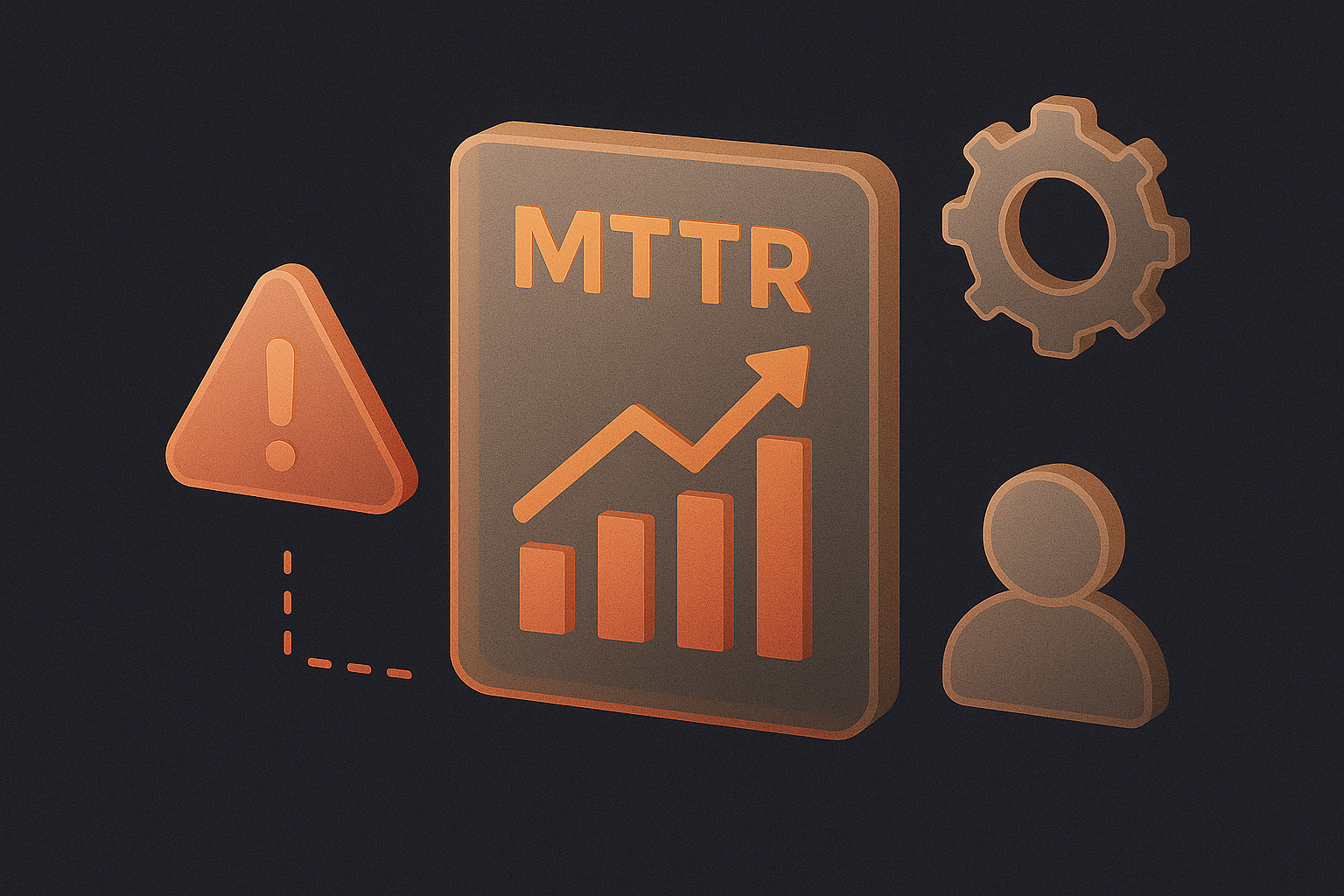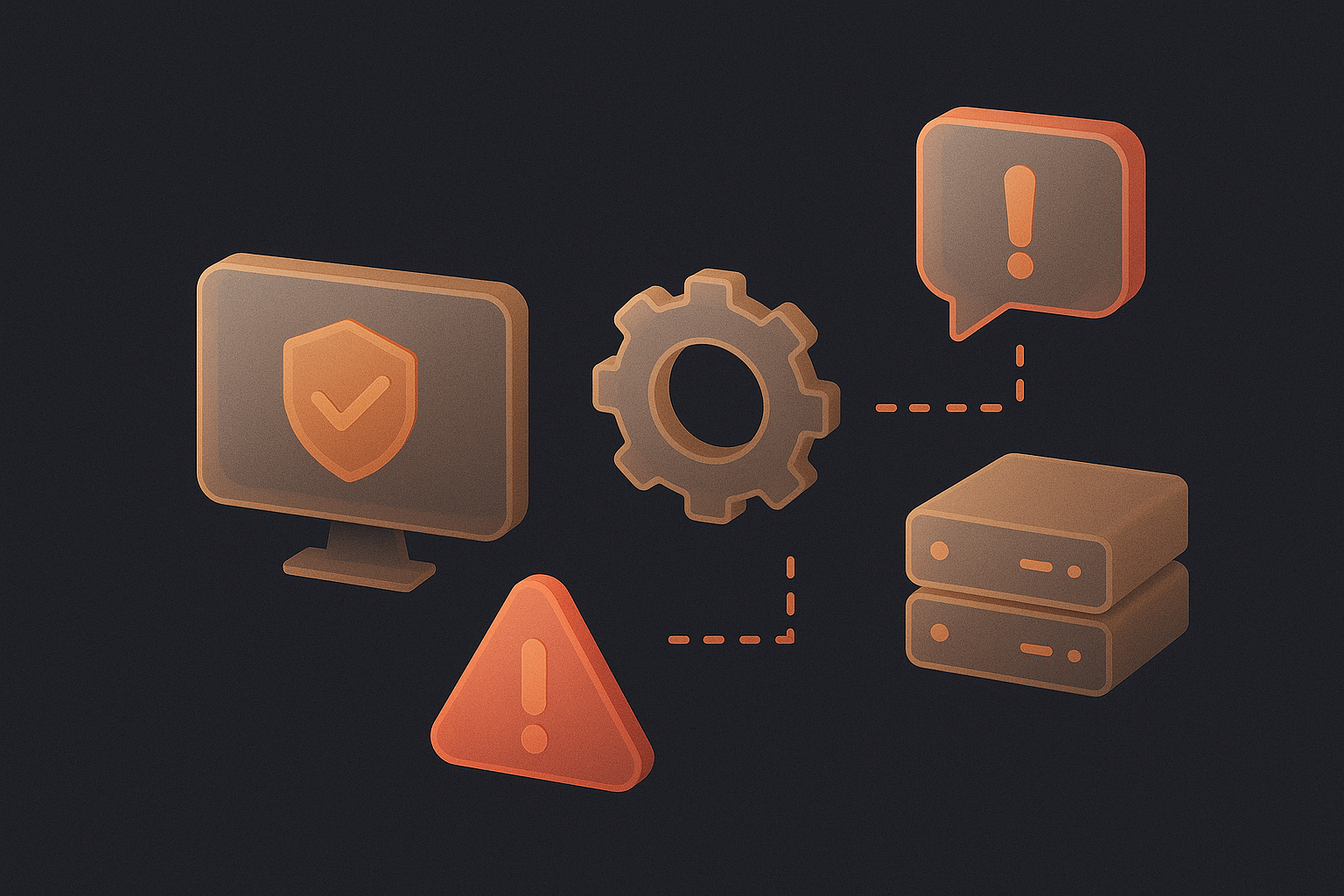IT support engineers rely on many specialized monitoring tools to detect infrastructure, application, and security problems. Once a monitoring tool detects a problem, it alerts must notify support to start incident response. Many complexities arise after the alert is sent. AlertOps offers many alert management features.
What is IT alerting software?
IT alerting systems centralize alerts from various monitoring and ticketing tools. Today, IT support engineers rely on many specialized monitoring tools to detect infrastructure, application, and security problems. Network monitoring tools can detect bottlenecks and high traffic which could lead to a performance impact. Application monitoring tools detect load and errors in critical systems. Infrastructure monitoring tools detect critical resource levels such as disk space, CPU, and memory availability. Data center monitoring tools use power, temperature, and other sensors to provide alerts that indicate potential failures affecting data center operations. Security monitoring tools can detect attacks and compromised systems. Because all these tools generate their own alerts, an IT alerting tool can centralize alerts to better manage them. Once a monitoring tool detects a problem, it alerting must notify support to start incident response.
Why do you need an IT (Information Technology) alerting tool?
Most monitoring tools can send notifications by email, SMS, or even chat tools like Slack or Microsoft Teams. However, many complexities arise after the initial alert is sent. What if the support engineer does not respond to the alert? How about after-hours support? What about following standard procedures, such as creating a ticket? What about managed response based on the alert severity? What about alert noise, when too many alerts for the same cause can overwhelm support engineers? These are some of the tasks that can be managed by an alert management tool.
When the support engineer does not respond to the alert, automatic escalations can send reminder alerts to the support engineer and escalate to other engineers. After-hours support can be managed with automated on-call scheduling. On-call scheduling ensures that alerts always reach the right person and escalate to the next on-call person when necessary. Standard operating procedures such as creating and updating help desk tickets can be automated by alert management tools. Severity-based alerting can easily be managed with an alert management tool, to ensure that high severity alerts follow a different process than low severity alerts. Alert noise is a frequent problem that is sometimes caused when monitoring tools continue to send repeated alerts for an open issue until the condition is no longer present. Alert management solves this problem with alert de-duplication, wherein identical alerts from the same source are suppressed so long as there is an open alert.

How does AlertOps manage Information Technology alerts?
Automatic Alert Escalation
AlertOps will automatically escalate an alert using multiple communication channels, including email, phone, SMS, mobile app push notifications to Android and iPhone, as well as chat tools such as Microsoft Teams and Slack. Additionally, AlertOps will escalate through the support team using on-call schedules.
On-Call Scheduling
AlertOps on-call schedules can be created for shifts, days of the week and weekends. Multiple team members can be included in each on-call schedule. AlertOps on-call schedules automatically determine the escalation path for each alert.
Workflow Automation
AlertOps includes a simple Workflow Automation feature, which includes many pre-built Workflows for things like escalating to a manager or sending reminders to the alert owner. AlertOps Workflows power automation features, such as creating, updating and closing tickets, or launching a remote task. You can easily build your own workflows using a simple form-based screen.
Severity-Based Alerting
With AlertOps, you can route alerts to specific teams, use a specific escalation policy or even suppress an alert until the next business day.
Alert Noise Deduplication
All AlertOps integrations are configured to automatically deduplicate alerts from the same source, you don’t need to worry about continuous alerts while you are troubleshooting a problem
These are just a few of the many features AlertOps has to offer as an IT alerting tool.



